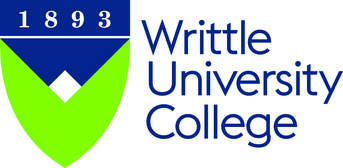Assessment of Humoral and Long-Term Cell-Mediated Immune Responses to Recombinant Canarypox-Vectored Equine Influenza Virus Vaccination in Horses Using Conventional and Accelerated Regimens Respectively
El-Hage, Charles, Hartley, Carol, Savage, Catherine, Watson, James, Gilkerson, James and Paillot, Romain (2022) Assessment of Humoral and Long-Term Cell-Mediated Immune Responses to Recombinant Canarypox-Vectored Equine Influenza Virus Vaccination in Horses Using Conventional and Accelerated Regimens Respectively. Vaccines, 10 (6). p. 855. ISSN 2076-393X
|
Text
vaccines-10-00855.pdf Available under License Creative Commons Attribution. Download (1MB) | Preview |
Abstract
During Australia’s first and only outbreak of equine influenza (EI), which was restricted to two northeastern states, horses were strategically vaccinated with a recombinant canarypox-vectored vaccine (rCP-EIV; ProteqFlu™, Merial P/L). The vaccine encoded for haemagglutinin (HA) belonging to two equine influenza viruses (EIVs), including an American and Eurasian lineage subtype that predated the EIV responsible for the outbreak (A/equine/Sydney/07). Racehorses in Victoria (a southern state that remained free of EI) were vaccinated prophylactically. Although the vaccine encoded for (HA) belonged to two EIVs of distinct strains of the field virus, clinical protection was reported in vaccinated horses. Our aim is to assess the extent of humoral immunity in one group of vaccinated horses and interferon-gamma ((EIV)-IFN-γ)) production in the peripheral blood mononuclear cells (PBMCs) of a second population of vaccinated horses. Twelve racehorses at work were monitored for haemagglutination inhibition antibodies to three antigenically distinct equine influenza viruses (EIVs) The EIV antigens included two H3N8 subtypes: A/equine/Sydney/07) A/equine/Newmarket/95 (a European lineage strain) and an H7N7 subtype (A/equine/Prague1956). Cell-mediated immune responses of: seven racehorses following an accelerated vaccination schedule, two horses vaccinated using a conventional regimen, and six unvaccinated horses were evaluated by determining (EIV)-IFN-γ levels. Antibody responses following vaccination with ProteqFlu™ were cross-reactive in nature, with responses to both H3N8 EIV strains. Although (EIV)IFN-γ was clearly detected following the in vitro re-stimulation of PBMC, there was no significant difference between the different groups of horses. Results of this study support reports of clinical protection of Australian horses following vaccination with Proteq-Flu™ with objective evidence of humoral cross-reactivity to the outbreak viral strain A/equine/Sydney/07.
| Item Type: | Article |
|---|---|
| Divisions: | Equine & Veterinary Physiotherapy |
| Depositing User: | Dr Romain Paillot |
| Date Deposited: | 23 Jul 2023 08:44 |
| Last Modified: | 10 Nov 2023 11:49 |
| URI: | https://writtle.repository.guildhe.ac.uk/id/eprint/15211 |
Actions (login required)
 |
Edit Item |

